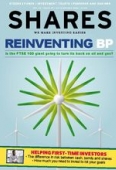Archived article
Please note that tax, investment, pension and ISA rules can change and the information and any views contained in this article may now be inaccurate.
Buy Persimmon which yields 7% and is getting its house in order

We think housebuilder Persimmon (PSN) can close the valuation gap on its rivals as it repairs its reputation and improves its building practices amid robust conditions for the wider sector.
The housebuilding space has enjoyed good momentum since the December general election delivered a measure of political certainty arguably not seen since before the Brexit vote in June 2016.
Online property site Rightmove (RMV) recently signalled a bumper time for house prices this spring as pent up buyer demand comes through – this will coincide with the all-important selling season for the housebuilders acting as a further catalyst for share prices.
Persimmon may provide some colour on this when it reports full year numbers on 27 February and in a subsequent trading update scheduled for 29 April.
Based on Jefferies’ forecasts Persimmon is on a 2020 yield of 7.3%, while Barratt Developments, a good point of comparison given its similar size, is on a yield of 5.5%.
The investment bank comments: ‘We believe it is not a stretch to argue that Persimmon with its higher returns and net cash should return to a lower dividend yield than Barratt and Taylor Wimpey as was the case in 2017.’
For Persimmon to trade on the same yield as Barratt it would need its share price to rise by more than 30% to approximately £43.
The reasons for Persimmon lagging behind in recent times is the construction and customer care issues which led to murmurings that it might lose its eligibility for the Help to Buy scheme which has been highly lucrative for the industry.
As it looked to address these problems, the company curbed the number of home completions in 2019, with properties also sold later in the construction process. Completions fell 4% to 15,855 leading to a 2.4% drop in revenue to £3.65bn.
The main risk to our positive stance on the shares is that the company’s efforts to address these problems lead to significant sacrifices on its level of returns.
For now, Persimmon continues to generate higher margins than its rivals and has an exceptionally strong balance sheet, even by the standards of a sector which is awash with cash. The company has an £844m net cash position.
It also benefits from limited exposure to the south east where valuations are more stretched, with lower average sale prices than peers and a good track record of acquiring land at the right prices.
Important information:
These articles are provided by Shares magazine which is published by AJ Bell Media, a part of AJ Bell. Shares is not written by AJ Bell.
Shares is provided for your general information and use and is not a personal recommendation to invest. It is not intended to be relied upon by you in making or not making any investment decisions. The investments referred to in these articles will not be suitable for all investors. If in doubt please seek appropriate independent financial advice.
Investors acting on the information in these articles do so at their own risk and AJ Bell Media and its staff do not accept liability for losses suffered by investors as a result of their investment decisions.

 magazine
magazine










